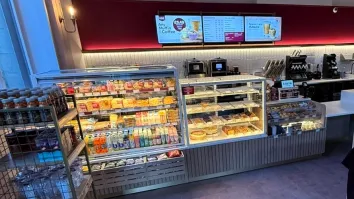Key trends shaping the QSR industry in Asia
Inflation, Loyalty, Digitalization, and Sustainability Initiatives are transforming the QSR landscape in Asia.
The foodservice industry in Asia is undergoing significant changes, necessitating quick service restaurants (QSRs) to adapt their strategies and offerings to meet evolving consumer demands and stay competitive. To shed light on these developments, QSR Asia interviewed Emil Fazira, Insight Manager for Food, Asia at Euromonitor International. Fazira highlighted four key trends shaping the foodservice industry in Asia and discussed their impact on QSR operations.
The first trend identified by Fazira is the impact of inflation and the cost of living. In a sluggish global economy, these factors affect both consumers and businesses, leading to a polarization in consumer spending. To cater to varying affordability expectations while maintaining convenience, QSRs are diversifying their menus and introducing more affordable choices such as bundling value meals. They are also targeting different household segments and exploring opportunities in breakfast and late-night crowds.
The second trend is increased price sensitivity and brand loyalty among consumers due to the cost of living pressures. Fazira notes that consumers are trading down or exploring alternative foodservice options. QSRs are responding by focusing on brand loyalty and offering affordable options to attract price-conscious customers.
Digitalization and channel shifts form the third trend. While the penetration of delivery services has already increased, the next few years will witness a significant shift to online ordering, not only for delivery but also for in-store dining. QSRs are leveraging self-service kiosks, mobile applications, and innovative engagement strategies such as gamification and partnerships with third-party delivery platforms to enhance customer experiences and retain their loyalty.
The fourth and final trend highlighted by Fazira is sustainability initiatives. QSRs are increasingly incorporating sustainability into their value propositions to generate long-term loyalty and trust among consumers. These initiatives encompass not only the menu but also in-store design, aiming to appeal to environmentally conscious customers.
When asked about the impact of these trends on QSR operations in Asia, Fazira identified three key areas of effects. Firstly, menu innovation is vital for catering to polarized spending abilities. QSRs are diversifying their menus, introducing new value meals, and targeting specific segments and times of the day to meet consumer expectations.
Secondly, QSRs are focusing on digital strategies for in-store and delivery sales. This includes implementing self-service kiosks, mobile application ordering, and engaging consumers through gamification and partnerships with delivery platforms. These digital innovations aim to improve accessibility, customer engagement, and retention.
Lastly, partnerships play a crucial role in enhancing customer loyalty and integrating sustainability initiatives or digital advancements. Collaborations between QSRs and suppliers, delivery platforms, or other brands enable value-added purchases and long-term consumer retention.
Fazira also highlighted the players effectively leveraging these trends. Leading QSR chains with extensive reach and capabilities can swiftly innovate and replicate successful initiatives across multiple markets. Additionally, experiential QSRs, such as specialist coffee shops, focus on creating novelty and interest through unique and seasonal menu items, attracting consumers and driving innovation.
When asked about the most crucial trend for QSRs to observe, Fazira emphasized the impact of the cost of living and inflation. These factors affect not only pricing but also supply chain operations and ingredient availability. QSRs must balance supply chain challenges with menu offerings that meet consumer desires while maintaining affordable options. Fazira also emphasized the importance of balancing loyalty and digital innovations, as QSRs must adapt to different stages of digital progress and retain brand loyalty amidst challenging market conditions.
In conclusion, the foodservice industry in Asia is experiencing transformative trends that require QSRs to adapt strategically. By understanding and responding to trends related to inflation, loyalty, digitalization, and sustainability initiatives, QSRs can thrive in a rapidly evolving market.
Watch the video to learn more.

























